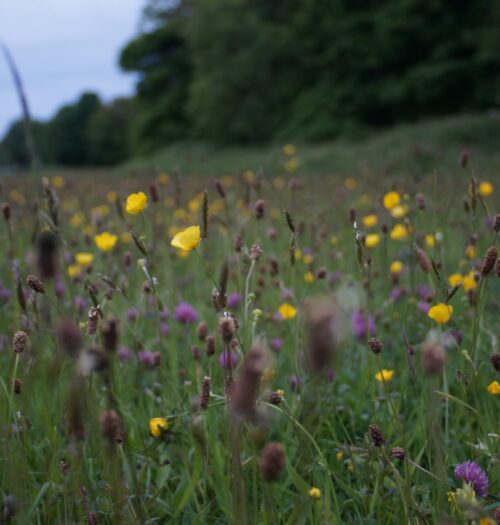
Five ways to tackle nature loss and climate change in the boardroom
Do you understand the risks of biodiversity loss for your business? This has been a prominent question in our recent sessions with the chairs of company sustainability committees, many of whom have noted the challenges of having boardroom conversations about it while climate issues and other priorities dominate.
To explore this theme, three experts joined us to discuss how boards should be considering nature loss and its link to their climate transition plans.
Why is biodiversity loss an important business issue?
Keith Weed, President of the RHS and non-executive director for Sainsbury’s and WPP, started the discussion by highlighting the existential threat we face if we don’t protect and restore flora and fauna around the world. Nature unpins our quality of life. It provides our food and fibre, materials for products, and the air we breathe – as well as bringing more intangible benefits to health, wellbeing, and culture. Unlike climate change, the loss of nature is much more tangible and the facts are clearer.
Biodiversity loss is a one-way street. Humanity will not exist at the end of it
Keith Weed, President of the RHS and non-executive director for Sainsbury’s and WPP
As Professor Richard Gregory, Head of Monitoring at the RSPB and Honorary Professor at UCL shared: Over 40% of species in Britain are declining, 15% are threatened with extinction, and 130 species have become extinct. Globally over one million species are threatened with extinction, species abundance is in decline and nearly 48% of ecosystems are degraded. Business activities are contributing to all of these trends.
Drawing on his experience as CMO at Unilever, Keith suggested that there is an opportunity for companies to become leaders on the issue and gain the reputational benefits from doing so, rather than waiting until their hands are forced. In any case, it’s the board’s role to look at risk avoidance, so nature loss is one area they should be considering now. The loss of nature is a particularly significant risk for companies whose products rely on its abundance.
While there are not yet the same incentives or external drivers from regulators and shareholders for biodiversity action, it is likely that they will come. And in the meantime, other important stakeholders are starting to express concerns. Consumer trends, for example, show a change in values and increased interest in the environment and nature.
Five things boards should consider
1. Nature can help your business deliver its climate goals
The ‘E’ in ‘ESG’ does not just mean climate change. Climate and nature are two sides of the same coin and we can’t limit global warming without tackling nature loss. Boards should recognise this when developing their climate plans.
Thomas Ball, Head of Business Advocacy at WWF, shared practical examples from businesses it is working with in this area, including raising public awareness of damage to critical ecosystems such as forests and oceans with SKY, and more detailed technical work to halve the environmental impact of the average weekly shop with Tesco and other food retailers. Driving investment into and creating policy support for Nature-based Solutions (NBS) is another key priority. As Thomas asserted, supporting NBS and the restoration of nature at scale is critical to tackling climate change, but also to deliver so many other environmental, social and economic benefits.
2. Measurement is tricky but shouldn’t prevent action
Measurement is one area where companies could find themselves getting stuck. Unlike climate change, there is no simple measure we can use to quantify nature loss. But starting with setting a baseline across the value chain is a good first step.
Richard highlighted how companies can use what they are doing, such as preventing loss of habitats or iconic species, to tell powerful stories and capture the imagination. And in time, initiatives like the Science-Based Targets for Nature will enable consistency across business communities.
3. Focus on your direct impacts first
As with climate change, in thinking about where to focus efforts it’s important to consider what’s material to your business. Keith said, when transitioning from ‘do less harm, to do no harm, to net positive,’ taking steps to remove negative impacts should come first. It’s also more actionable for the board to focus on the specific impacts the company is having.
4. Mainstreaming the issue in the business to build the skills and capacity needed
Participants agreed that it was time to mainstream environmental issues into the core of the business and move beyond traditional CSR approaches. This is the only way to ensure the correct resourcing and skill exist, both internally and externally, to support the changes that may be required to respond to climate change and nature loss. It’s also one way that companies can support employee retention and develop the talent pool, given the interest younger staff may have in these issues.
5. Collaboration is crucial
It was clear that boards must become more comfortable working with others – both across the value chain and across sectors – to address the twin challenges of climate change and nature loss. There are two main reasons for this. First, the need to share expertise and resources to tackle the complicated issues business is facing. And second, because the huge scale and pace of change needed on both the climate and nature crises requires it. Businesses should be reassured that such collaboration is pre-competitive.
Ultimately it was clear from the discussion that nature loss is not yet recognised as the critical issue it needs to be by many boards. There is an opportunity for non-executive directors to start to change this.




